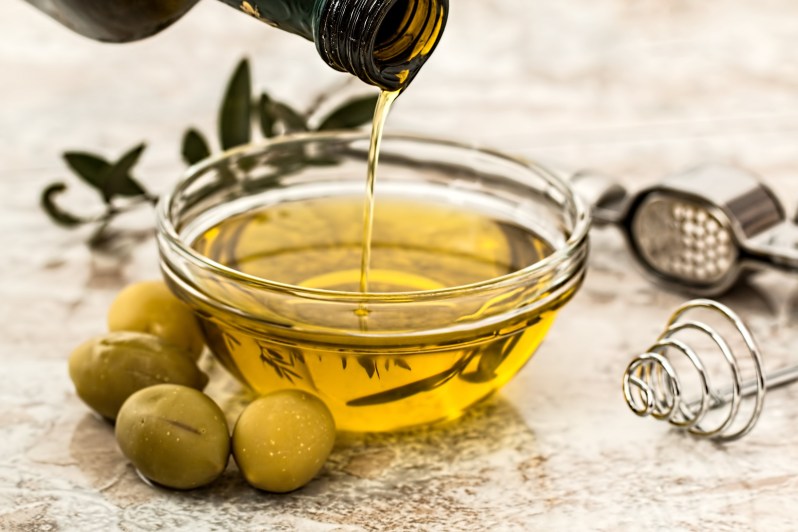
There’s a lot of conflicting information about fats in your diet and weight loss. The reason is that not all fats are created equal. There are some sources that are not only good for you but also essential for maintaining good health. So, let’s dig into the nitty gritty and unravel the mysteries of healthy fats.

What are healthy fats?
It is important to know that not all fats are equal when it comes to health benefits. While some fats are harmful to your health, your body needs fat to function properly. The key to avoiding fats that are undesirable is to distinguish between those that are good and those that are bad. To do that, let’s take a look at the different types of fats that exist.
Saturated fats
Saturated fats, often found in red meat, full-fat dairy products, and tropical oils like coconut and palm oil, have been the subject of much debate. While they are not necessarily evil, too much of these fats can contribute to an increase in LDL cholesterol levels, the infamous “bad” cholesterol. Moderation is key here – it’s okay to enjoy a juicy steak, but perhaps not every night of the week.
Trans fats
Trans fats, on the other hand, are the real enemies. Found in partially hydrogenated oils, these fats not only raise LDL cholesterol but also lower the levels of HDL cholesterol, the “good” cholesterol. Fortunately, many countries have banned or restricted the use of trans fats, but it’s always a good idea to check food labels to stay on the safe side.
Unsaturated fats
These are the fats you want to invite to your dinner table. Divided into two categories – monounsaturated and polyunsaturated – these fats come with a treasure trove of health benefits.
Monounsaturated fats
Avocados, olive oil, and nuts are rich sources of monounsaturated fats. They can help lower LDL cholesterol levels and reduce the risk of heart disease. Eating more monounsaturated fats can help to reduce inflammation and improve overall heart health.
Polyunsaturated fats
Think fatty fish, flaxseeds, and walnuts. Packed with omega-3 and omega-6 fatty acids, polyunsaturated fats are essential for brain health and can contribute to a healthy heart. Polyunsaturated fats can also help reduce cholesterol levels, reduce inflammation, and can also help to lower blood pressure.

How to read nutrition labels
Now that you know the players in the fat game, the next challenge is identifying them in your everyday choices. A nutrition label will provide you with all the information you need to make an informed decision. Opt for items with lower saturated and trans fat content and higher levels of unsaturated fats.
When selecting meat, go for lean cuts and trim visible fat. Poultry, fish, and plant-based proteins are excellent choices. Swap out saturated fats for heart-healthy oils like olive, canola, or avocado oil in your cooking. Instead of reaching for that bag of chips, grab a handful of nuts or seeds. They’re not only satisfying but also rich in healthy fats.

How much fat should you consume?
The answer to how much fat you should consume is not a one-size-fits-all situation; it depends on various factors such as your age, gender, activity level, and overall health goals. Nonetheless, we can provide some general guidelines to steer you in the right direction.
Your fat intake should be just right – not too much, not too little. According to the Dietary Guidelines for Americans, fat should make up 20% to 35% of your total daily calorie intake. Roughly 44-78 grams per day based on a 2,000-calorie-a-day diet, with saturated fat intake making up 10% or less of the daily calories consumed. This range allows for flexibility based on individual needs and preferences.
It’s not just about the quantity of fat but also the quality. Aim to include a variety of sources of healthy fats in your diet. Incorporate avocados, nuts, seeds, and fatty fish to ensure you’re getting the right balance of essential fatty acids and reaping the associated health benefits. You should also limit your intake of unhealthy fats, such as trans fats found in processed foods. Make sure to read food labels carefully and opt for healthier alternatives to ultra-processed foods whenever possible.

Can you lose weight while eating fats?
Absolutely! The idea of losing weight while indulging in fats might sound counterintuitive, but it’s rooted in the fact that not all fats are created equal. Saturated fats, for example, are unhealthy and can lead to weight gain. On the other hand, monounsaturated fats and polyunsaturated fats can actually help you lose weight.
Healthy fats not only provide a satisfying and flavorful element to your meals but also contribute to a feeling of fullness, reducing the likelihood of mindless snacking. Furthermore, healthy fats play a crucial role in supporting overall well-being, from aiding nutrient absorption to promoting optimal brain function.
When incorporated into a balanced diet alongside regular physical activity, these fats can become your ally in achieving and maintaining a healthy weight. Remember, the key lies in moderation, making mindful choices, and savoring the delightful journey of nourishing your body while working towards your weight loss goals. So, fear not the fats – embrace the good ones and let them be your partners in this transformative journey.



